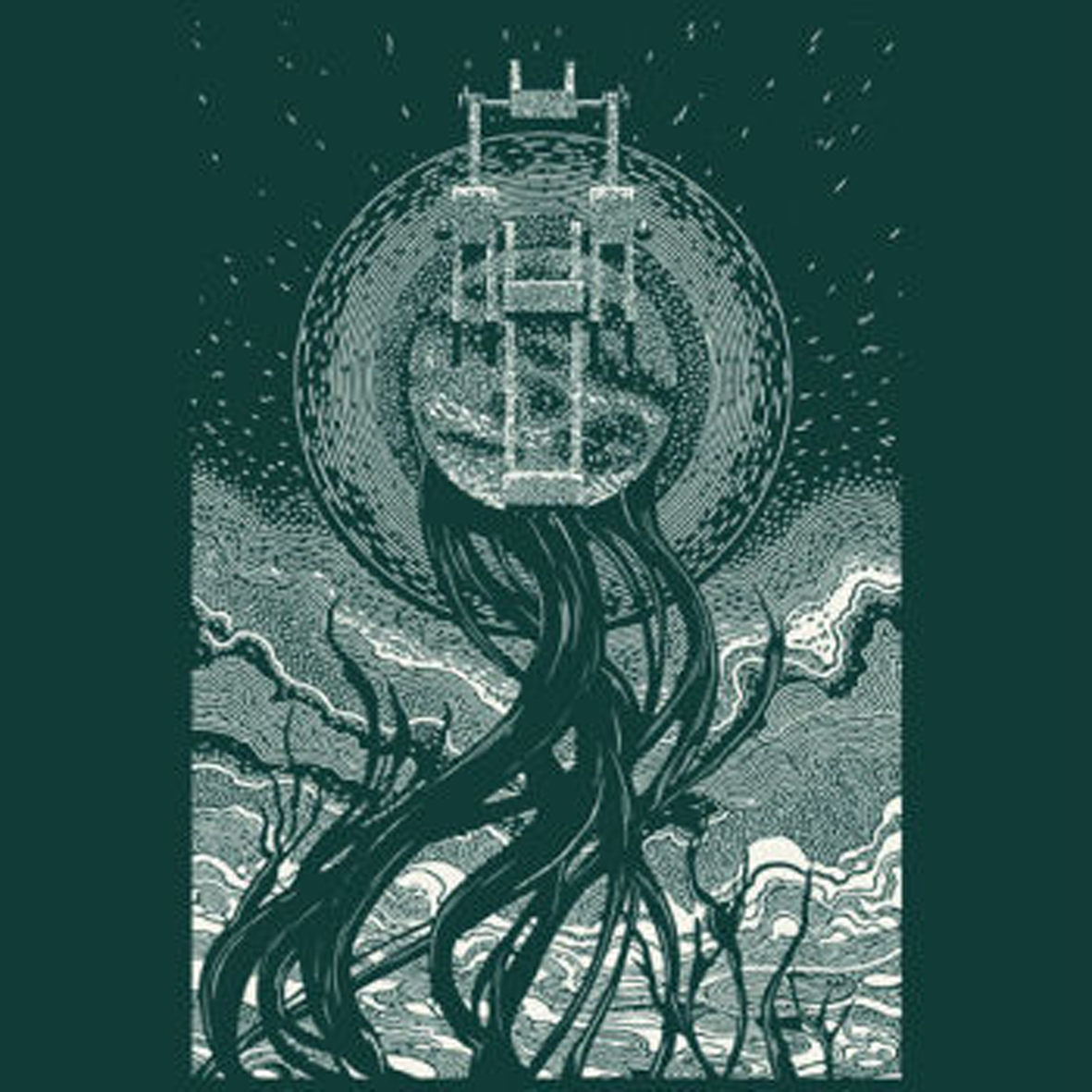Wrekmeister Harmonies, "Then It All Came Down"
 I was completely floored by last year's blackened drone/doom metal epic You've Always Meant So Much To Me, so I was very eager to hear how J.R. Robinson could possibly follow such an out-of-nowhere tour de force. As it turns out, he chose to follow it by essentially doing much the same thing…again. I was initially a bit disappointed by that, as Then It All Came Down is not as immediately striking as its predecessor, nor did it ambush me with any real unexpected twists. Once I listened to it enough for everything to fully sink in, however, it gradually dawned on me that this latest effort is just as spectacular in its own right: Robinson may have revisited his previous formula, but he also found several new and crushingly heavy ways to improve upon it.
I was completely floored by last year's blackened drone/doom metal epic You've Always Meant So Much To Me, so I was very eager to hear how J.R. Robinson could possibly follow such an out-of-nowhere tour de force. As it turns out, he chose to follow it by essentially doing much the same thing…again. I was initially a bit disappointed by that, as Then It All Came Down is not as immediately striking as its predecessor, nor did it ambush me with any real unexpected twists. Once I listened to it enough for everything to fully sink in, however, it gradually dawned on me that this latest effort is just as spectacular in its own right: Robinson may have revisited his previous formula, but he also found several new and crushingly heavy ways to improve upon it.
As he did with his previous opus, Robinson again assembled a murderer's row of Chicago's finest noise and metal luminaries to ensure that Then It All Came would be as mesmerizing and scarily heavy as possible.Much like David Tibet, J.R. seems to have a distinct knack for drawing an eclectic array of personalities and talents into his orbit.There are a couple of ambitious changes and unexpected guests this time around though, as well as a compelling overarching concept: the piece is based upon a Truman Capote essay about underground musician/Manson-associate/convicted murderer Bobby Beausoleil, mirroring his gradual descent from a talented, hedonistic youth into beaches, girls, and motorcycles into much darker and more occult waters.The pre-fall part of Beausoleil's story is conveyed through lushly beautiful drones mingled with chimes, Siren-esque chanting from a trio of female vocalists, and wonderfully roiling acoustic guitar from Ryley Walker. All of that is rich with intended meaning and relation to moments from Bobby's life, of course, but the more important thing is that it sounds amazing– particularly when Walker's intricate, cascading guitar work churns with increasing aggression beneath the drone haze as the piece builds in intensity.
Around the 10-minute mark, however, the piece wobbles a bit, as Leviathan's Wrest turns up for an croaking Black Metal-style invocation that seems a bit too cartoonish and heavy-handed for me as a non-Black Metal fan. However, Robinson quickly rights the ship with the appearance of a melancholy string quartet riding an ominous, throbbing drone. While the actual music is quite beautiful, the real magic is how the piece seems to organically flow like a bleary, ritualistic dreamscape. Nothing ever feels completely real, as there is always something billowing, pulsing, or swelling around the periphery to disorient me. Eventually, the piece predictably erupts into a doom metal crescendo, which is (again) not my favorite thing in the world, but it is executed brilliantly once it fully coheres. In fact, it eventually rivals Walker's playing as one of my favorite parts of the album, as the drums lock into a stumbling slow-motion groove and all hell breaks loose, as the sludgy down-tuned chords are enhanced with all kinds of processed howls and smoldering electronic wreckage.
There is some falling action after the apocalyptic metal crescendo, but the meat of the album is essentially the gradual transition from sublime drone heaven to charred metal ruin.The album's flaws exist only in a completely subjective sense, as extreme metal croaking and howling vocals are just not for me anymore.Even so, however, I suspect that those moments were absolutely devastating and spine-chilling in the piece's original context, as it debuted with a moonlight performance in Chicago's Bohemia National Cemetery last year (presumably the perfect place for blood-curdling, inhuman howls to make a startling impact).Ultimately, I think I still prefer You've Always Meant So Much to Me, but Then It All Came Down inarguably boasts similarly brilliant vision and execution.Although some parts did not resonate as strongly with me this time around, Robinson went much bigger, much deeper, and much darker, compensating for the rare weak moments with some alternately rapturous and brutal high points.
Samples:
 



